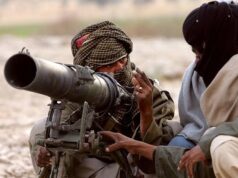By Colonel Awadhesh Kumar, Veteran Special Forces
The British played their great game on the Indian Subcontinent till the last. First they ensured solid divide between the Congress Party and the Muslim League at the political level and among the top leaders of the two parties at the personnel level. Then they encouraged the growth of an idea of a separate Muslim Nation. Next they cleverly gave the choice to the Princely States to merge with either of the two emerging countries…….. how democratic of the so called Mother of Democracy, must be wondering the Lichchavis of Vaishali Kingdom of North Bihar.
Thanks to the decisiveness of Patel that this “brilliant plan“of the British did not succeed. Though Hyderabad and, Junagadh needed tougher action, few still oscillating fell in line without murmur. Yet another clever ploy of the British succeeded in creating super mayhem in the entire Subcontinent and that was the haphazard drawing of the Radcliffe Line to divide India and Pakistan, resulting in death of millions. It is such line drawings of the Britishers and some of their fellow Europeans which is responsible for all the past and present miseries continuing in Africa and Middle East.
However on the Indian Subcontinent, the British nearly succeeded in creation of a third independent Country that is Kashmir. The Indian Cabinet managed to save the day by taking timely decision to send the Indian Army as soon as Maharaja Hari Singh signed the papers to merge into the Indian Union. The Indian Army saved Kashmir initially from the marauding tribals and then it saved it from the attacking Pakistan Army. However the success remained partial only, due to self-inflicted goal at the political level and the sore on the Indian head is still festering since last 70 years.
Gilgit-Baltistan today has an estimated population of 2 million across 72,000 square km of territory. This area has been mentioned even in the ancient Indian literatures including PURANAS. Britishers created a separate Gilgit Agency in 1889 by taking this area on lease from Maharaja if Kashmir. This was their way of securing the region as a buffer from the Russians as part of the Great Game. This gave the British erstwhile complete control of Defence and Foreign relations while Maharaja of Kashmir retained civil administration. In 1935 the lease was further extended for a period of 60 years. However in 1947 prior to independence of both India and Pakistan, this lease was terminated by Lord Mountbatten and complete sovereignty vested with Maharaja of Kashmir.
However Britishers had a hidden trump card in the form of Major Brown who was the Commander of the Gilgit Scouts. As soon as Maharaja joined the Indian Union and the Indian Army stepped in to stop the invading tribal marauders, the Great Game was played. Under code name DATTA KHEL, planned to the minutest details, Major Brown with his Gilgit Scouts simply mutinied on 01 Nov 1947 and over threw the Governor Ghansara Singh. Just imagine the Commander In Chiefs on both the side were still British Generals but officially they were “SURPRISED” at this action of Major Brown …….nearly as surprising if Scotland suddenly declares independence. A Provincial Governor took over but lasted just 16 days and Pakistan control was established on 16 Nov47 on arrival of Pakistani Political Officer Khan Mohammed Alam. As the Indian Army was still securing the Kashmir Valley and areas of Jammu and Poonch from Pakistani invaders, the Gilgit Scouts moved ahead and secured Baltistan, Stardust and by May 1948 right up to Kargil and Drass. They even started contemplating move towards Leh. Thankfully they got driven away from Drass and Kargil and complete Ladhak was saved in the nick of time after the famous battle at Zozila. The timely arrival of tanks at Zozila under Rajendra Singh Sparrow saved the day for India. Similarly the courageous landing made by the Dakotas earlier on 24 May pioneered by Group Captain “Baba” Mehar Singh with General Thimmayya on board at Leh airfield had saved Ladhak.
However it had not been an easy fight for the treacherous Major Brown. The Maharaja‘s Forces which now came under India had held on to the fort at Skardu for quite some time initially against the tribals and later against the Gilgit Scouts. They gave up only after six months of siege when ammunition was totally exhausted. Had even one company of Indian Paratroopers been dropped there in time, the entire region could have been saved. Such an operation was contemplated but given up due to resource crunch. However the IAF did not give up so easily. Right from day one of tribal attack on Skardu IAF bombed and straffed the enemy at Skardu, Chilas, Bunji and Gilgit and maintained pressure right up to declaration of Cease Fire on 01Jan1949.
Thus Gilgit-Baltistan’s legal identity and constitutional status thus is very clear. It was part of State of Kashmir and with merger if the state in the Indian Union it became part if India and will remain so. The area is currently under the occupation of Pakistan, in violation of the United Nations Commission for India and Pakistan (UNCIP) resolution of 28 April 1949 except for certain areas up to Turtok ahead of Kargil which were liberated by India in 1971. Treating Gilgit-Baltistan as its annexed territory, Pakistan has introduced several crushing and punitive administrative packages in the territory over the last seven decades.
The most recent was the 2009 order which established the Gilgit-Baltistan Legislative Assembly (GBLA) and Gilgit-Baltistan Council. However, the Legislative Assembly cannot discuss subjects like foreign affairs, defence, internal security and fiscal plans of the government of Pakistan. The Council, which has the Prime Minister as its chairman controls subjects like minerals, water and power, tourism, forests, customs and excise duties, and also has the power to impose taxes on means of production, corporations, agriculture, sale and purchase of goods, capital value of assets and terminal taxes on carriages and passengers. The current unrest which is basically for self governance and against Chinese interference and presence in the area is presently targeting the excessive and unjust Tax Regime.
Therefore the youth, the pro-active civil society of Gilgit-Baltistan and the political class are protesting the levying of “illegal” taxes on them by the Pakistani authorities, that too without any constitutional rights at par with the rest of Pakistan. The region has been witnessing large-scale protests, with complete shutters-down in marketplaces over the years. These protests at times have been ruthlessly brought down by the Pakistani authorities.
The newspapers quoted Dr Muhammed Zaman of Awami Action Committee saying “We are simply saying ‘no taxation without representation’. Why should we pay tax when we are not getting any facilities from the government? Pakistan is acting like a parasite, exploiting our region but not extending any facilities. Those who protest are put in prison. Pakistan has neither accepted us, nor rejected us, unlike India, which has given Jammu and Kashmir special status under Article 370. I was put in prison and I had to leave the country after being released. But we are not going to bow down in front of the government. Unless and until we are treated as equal and are extended facilities like all other regions, we are not going to pay taxes,”. AAC has lots of sway in the entire region. With rising protests, the withdrawal of the local taxes were announced but without amending the income tax adaptation act 2012, under which the taxes were imposed.
The newspaper further quoted the vice president of ACC, Fida Hussain, that “the protests would resume from 12 December as the people will not accept this taxation system. We are not scared of going to prison. We are fighting for the common people. The Pakistani government cannot just pass an order saying that we will have to pay the same tax, which is applicable to the entire country. We cannot be bought or made to bend,”.
However Hafiz Hafeez-ur-Rehman,, the CM said in an interview to the local media that though we receives Rs 100 billion from Pakistan the total taxes collected in the region is only Rs 5 billion. Taxes collected from people are being spent on people’s welfare only. Also mega CPEC projects have been started, in which national and multinational companies were taking part. These companies are paying taxes in other provinces and would have to pay taxes in Gilgit Baltistan too. Hence tax act is unlikely to be abolished.
The locals have also protested against the China-Pakistan Economic Corridor (CPEC), highlighting its impact on climate and the indigenous people who form a significant part of the population in Gilgit-Baltistan. Apart from the tax issues, major demands of Gilgit-Baltistan people is that they should get proper share of CPEC income, the region should be declared a tax free zone, all power projects in the region should be controlled by the GB Assembly instead of Pakistan. All subsidies that have been stopped should also be restored and historical trade routes leading from Gilgit-Baltistan to Ladakh and Tajikistan should be reopened.
Incidentally the Hurriyat Conference, the traitors who oppose merger of Kashmir with the Indian Union are also against these ongoing protests in Gilgit Baltistan Region as this they view it as affecting their own agenda in Kashmir. Well India must wait patiently and make its move at the right time. Meanwhile we must extend full support to the people of Gilgit Baltistan in their fight for justice.





